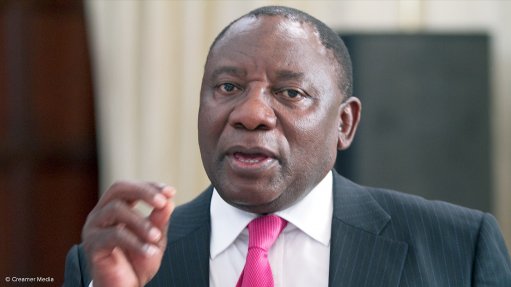
Deputy President Cyril Ramaphosa
One-third of South Africa’s 57-million-strong population is excluded from the economy, which impedes prospects of rapid growth in South Africa, said Deputy President Cyril Ramaphosa on Monday.
Addressing an audience at the Black Securities and Investment Professionals (Absip) investment management summit in Johannesburg, Gauteng, he noted that it was imperative for an analysis to be conducted to see how growth could be achieved and transformation implemented in the country.
“One of the tragedies of our transformation is that when the African National Congress (ANC) came into power, we just assimilated and took everything from the past and became part of the process going forward,” he said.
He added that this has happened across the board.
“Rather than affecting a radical change, we just patched ourselves in and became part of the processes that have always taken place in the past,” he noted.
Ramaphosa said businesses needed to ask themselves whether their roles were limited to a professional level or whether they should go beyond focusing on investing money and making profits.
“We live in a country that is facing enormous challenges and all of us should find a way of making a contribution to tackle these challenges,” he said.
He further pointed out that, as a nation, South Africa’s starting point was embedded in the Constitution, which was drafted out of the Freedom Charter.
He stated that the National Development Plan (NDP) was a further extension of that, as it sought inclusive growth for South African citizens.
“The NDP is the guiding light in terms of where we should be going,” he said.
Ramaphosa added that steps needed to be taken to reduce poverty, inequality and unemployment, especially youth unemployment.
He highlighted that 60% of the unemployed youth in the country were black people between the ages of 18 and 35 and that skills development was imperative to reduce the youth unemployment number.
“Skills are important and we would like to see how organisations such as Absip can improve education outcomes in South Africa,” he said.